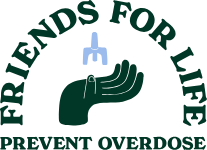Opioid Overdose Prevention
Washington Poison Center and Seattle Children's are inviting students from kindergarten through 12th grade to participate in our 19th annual Poison Prevention Poster Contest!
This year's theme is "Pick Your Poison." Submit a poster by February 2.
Multiple winners per age category, with prizes including gift cards, iPads, class parties, and visits with your local legislators.
Drug overdose is now a leading cause of injury death among children and young adults in the Washington, Alaska, Montana, Idaho (WAMI) region. From 2019 to 2022 the rate of deaths involving opioids more than doubled in Washington State alone, with synthetic opioids like fentanyl driving this increase. Seattle Children’s aims to reduce overdoses by:
- Promoting education and resources to respond to the opioid overdose crisis among young people.
- Supporting community-led activities to educate adults and young people on opioid overdose recognition, response, and prevention.
- Facilitating access to education and resources for safe medicine storage and disposal.
- Partnering with healthcare providers to reduce stigma around patient substance use, understand trends in pediatric opioid use, and support professional training on safely treating pediatric substance use disorder.
Start the Conversation With Your Teens About Fentanyl
 Teens may not fully question the source or potency of fake pills or other illicit substances that appear to be legitimate and safe but are laced with illicit fentanyl. Fentanyl is 50 times stronger than heroin and 100 times stronger than morphine.
Teens may not fully question the source or potency of fake pills or other illicit substances that appear to be legitimate and safe but are laced with illicit fentanyl. Fentanyl is 50 times stronger than heroin and 100 times stronger than morphine.
Most teens say they trust their parents or caregivers more than anyone when it comes to information and advice about drugs. Talk to the teens in your life about how experimenting with drugs can hurt them and their future. See the conversation guide from Washington Friends for Life.
Naloxone Saves Lives
Naloxone (also known by the brand name NARCAN®) is a safe medicine for all ages that can reverse an opioid overdose. An opioid overdose is when a person gets too much opioid and gets very sleepy or stops breathing. This is a life-threatening emergency. Learn more about how to use naloxone in case of an overdose.
Many preventable overdose deaths happen at home when somebody else, like a friend or family member is present. Having naloxone readily available can save lives. Find naloxone in Washington State.
Securely Store and Dispose of Medicines
Medicines, including prescription and over the counter, can do a lot of good, but they can cause harm if they get in the wrong hands or are used the wrong way. Doses and side effects of medicines can vary from person to person, so you should not use medicines that were prescribed for someone else. Learn more about what you can do to prevent medicine misuse.
Younger children can also get into pills or substances laced with fentanyl when they are left within reach. Store medicines and other unsafe products out of reach or in a locked cabinet.
Resources for Healthcare Professionals
There are several different types of medicines approved by the U.S. Food and Drug Administration (FDA) for opioid overdose, withdrawal, and addiction – all of which are safe, effective, and save lives. Find providers who can prescribe these medicines for adolescents through the Washington Recovery Help Line.
ScalaNW offers a wide range of resources for clinicians including adolescent buprenorphine initiation for patients 13 and older.

